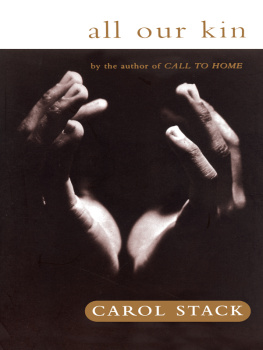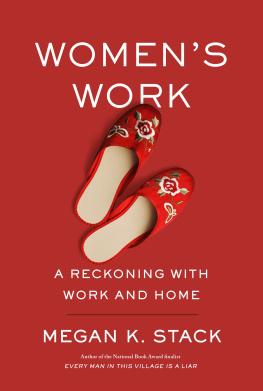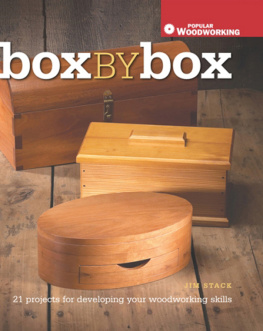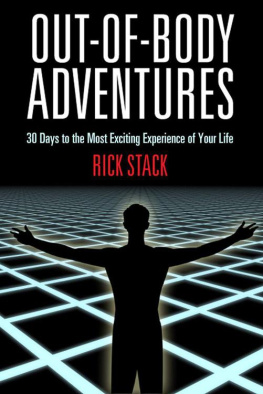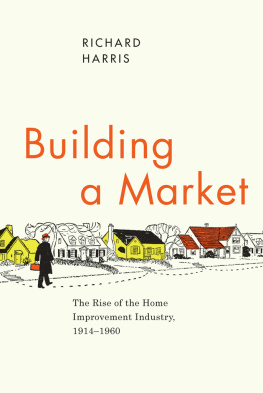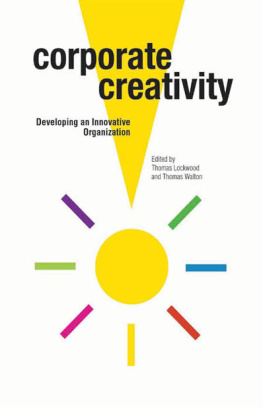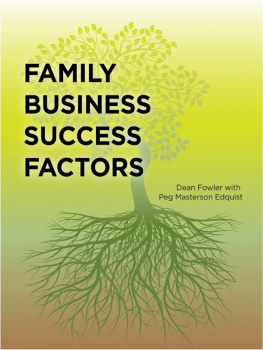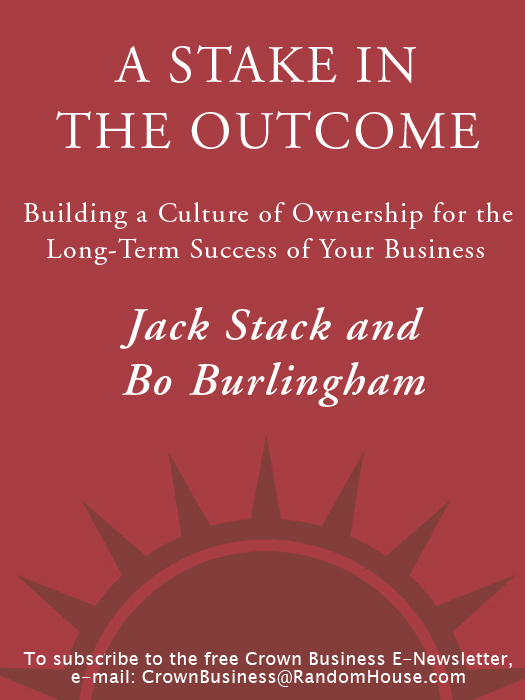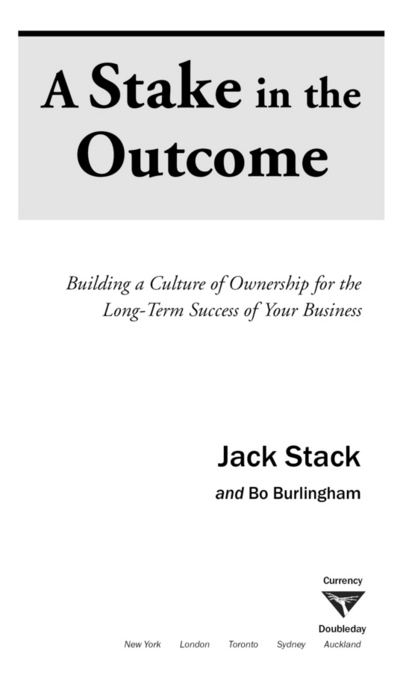A C URRENCY B OOK
PUBLISHED BY DOUBLEDAY
a division of Random House, Inc.
CURRENCY is a trademark of Random House, Inc., and DOUBLEDAY is a registered trademark of Random House, Inc.
A STAKE IN THE OUTCOME was originally published in hardcover by Currency in April 2002.
Library of Congress Cataloging-in-Publication Data
Stack, Jack.
A stake in the outcome : building a culture of ownership for the long-term success of your business / Jack Stack and Bo Burlingham.
p. cm.
1. Success in business. I. Burlingham, Bo. II. Title.
HF5386.S773 2003
658.314dc21
2003055195
eISBN: 978-0-385-50510-9
Copyright 2003 by The Great Game of Business Inc.
All Rights Reserved
All trademarks are the property of their respective companies
v3.1
This book is dedicated to the big players, past and present, who have understood the competitive advantage of a culture of ownership, including Sam Walton, Herb Kelleher, Bob Beyster, Tom Watson, and Ewing Kaufman. They knew in their hearts and minds that only ownership could close the gap between the haves and the have-nots, and theyve shown the way for the rest of us.
This book is also dedicated to all the members of the Stack and Burlingham families, without whose support and encouragement it would never have been written.
Contents
Acknowledgments
It would take more space than we have here to acknowledge everybody who has helped shape this book and the thinking behind it, but there are at least four groups of people who deserve special recognition and thanks.
One group we think of as the contributors. They include, first and foremost, Janet Coleman, the managing editor of Leader to Leader, the quarterly publication of The Drucker Foundation, who shepherded us through the process of creating the original manuscript. She was there through thick and thin, asking the right questions, offering common-sense feedback, providing calm, level-headed guidance throughout. We would not have made it without her.
Inc. magazines editor-in-chief, George Gendron, also played a vital role, coming in at critical points in the process to offer invaluable editorial advice and encouragement. (That means he made sure we didnt kill each other.) Gary MacDonald of Kingston Technology Corp. was our indefatigable lab tester, who not only read and marked up an early version of the manuscript but also tried implementing the ideas in some of the companies he works with. His observations were extremely helpful in making the revisions.
Sam Kaplan, president of Central Chase Associates LLC in New York City, was a great resource, especially when it came to sorting through the reasons that companies are bought and sold. Norm Brodsky, the venerable entrepreneur and Street Smarts columnist, provided the kind of sage counsel weve come to expect from him over the years. Were indebted as well to Tim Bellanti and Jeff Johnson, who gave us feedback and criticism along the way, and to Dennis Balcom, who helped us keep it all in perspective.
Corey Rosen, the founder and guiding spirit of the National Center for Employee Ownership, has been a pioneer on the issues we write about here, as well as a wonderful resource and a great friend. Hes also bloody accurate on the complexities of equity sharing, and accuracy is vital when it comes to ownership. Bill Fotsch and David Lough kept us on our toes at all times. Art Kleiner offered helpful feedback and insight into the wider world of business. So, for that matter, did our friend and colleague John Case, who has done more than any other individual to document the open-book phenomenon as it has emerged over the past ten years.
Of course, there were also a lot of key contributors from the SRC family of businesses. Ryan Stack and Jim Carrigan provided important research on several of the episodes weve written about and made us focus on the hard questions we had to answer. Becky Lane was, as usual, the voice of reason. She greased the wheels with the able assistance of Sarah Dennis and Linda McHaney. Dennis Sheppard deserves special recognition for keeping us together, on track, and moving forward, while helping flesh out many of the stories and checking up on our accuracy. In that regard, we also received tremendous help from Beverly Willis, Alexis Brown, Jeff Payne, Denise Bredfeldt, Steve Crowder, Eric Paulsen, Marty Callison, Mike Carrigan, Gary Brown, Rich Armstrong, Tom Samsel, Dave Lahay, and Joe Loeber.
Finally, we are indebted to Roger Scholl and his colleagues at Currency Books, Stephanie Land and Sarah Rainone. Together they helped us improve the manuscript in countless ways. We also want to thank publishing manager Rebecca Holland, book manager Chris Fortunato, and designers and typesetters Tina Thompson and Erin L. Matherne for their excellent (and speedy) contributions.
Then there are the players. The great experiment we write about in this book has been, as noted, a collaborative enterprise. Weve drawn extensively on the advice and experiences of the practitioners who are leading the way to a new business paradigm.
Some of them contributed the stories weve used in the Field Notes scattered throughout the book. They include Bill and John Palmer of Commercial Casework, in Fremont, California; Leslie and Sam Fishbein of Kacey Fine Furniture, based in Denver, Colorado; Joe Knight, Joe Cornwell, Joe VanDenBergh, and Reid Leland of Setpoint, in Ogden, Utah; Bruce Nims, Jan Baird, and Missy Viewig of Nims Associates, based in Decatur, Illinois; Steve Weatherford of Daryl Flood Warehouse and Movers, based in Carrolton, Texas; and Bruce Thurston of Charlton & Hill Ltd., in Lethbridge, Alberta.
We received valuable feedback from those people and from other great business practitioners, including Martin Babinec of Trinet Group, based in San Leandro, California; Todd Parnell and Cyd Blackburn of The Bank, in Springfield, Missouri; Jay Burchfield of The Trust Company of the Ozarks, also in Springfield; Joe Jenkins of Jenkins Diesel, in Springfield; Bruce Kelling of Tiburon Inc., based in Fremont, California; Steve Petersen of Petersen Inc., in Ogden, Utah; Eric Harvey of The Walk the Talk Company, in Dallas, Texas; John Cappelletti, Paul Studebaker, Greg Zamin, and John Blatnik of Putman Media, in Itasca, Illinois; and Gary Davis and Gary Olds of Jims Formal Wear, based in Trenton, Illinois.
The third group consists of the teachers who have helped us learn some of the most important lessons in building a culture of ownership. You will find many of their names in the pages of this book. They are people with whom we shared the struggle, and we will always think of them with respect and affection. In particular, wed like to single out Dan McCoy, Dan Rorke, Stan Golder, George Stone, George DiPrima, Mike Ingram, Mike Carrigan, Lee Shroyer, Doug Rothert, Dave Lahay, and the RSC guysRalph, Doug, Bill, and Joe.
Most of all, we want to thank the people at the center of our lives. Without them, none of this would matter. Betsy Stack and Lisa Burlingham, who have the patience of saints, somehow managed to bear with us through the long process of bringing this book to fruition. Ryan, Katie, Meghan, Timmy, and Kylie Stack and Jake and Kate Burlingham gave us constant support, not to mention a sense of purpose. Our deepest hope is that this book will play some small role in making their world a better place.



